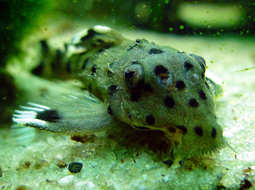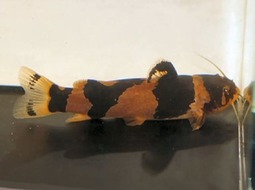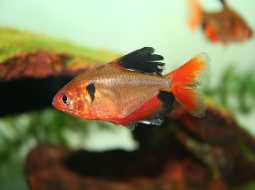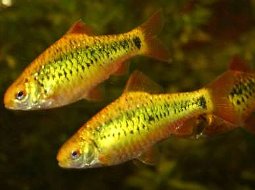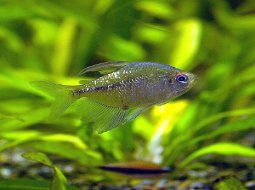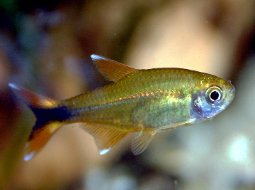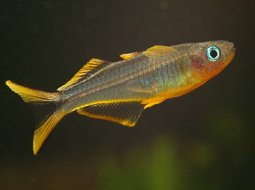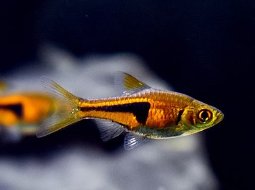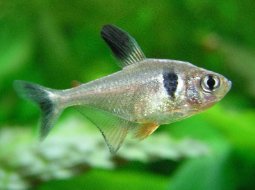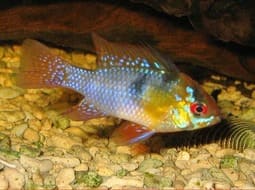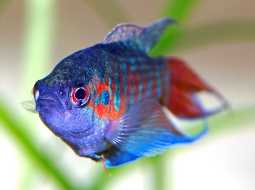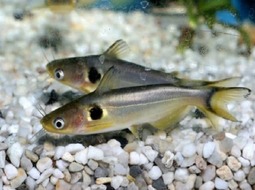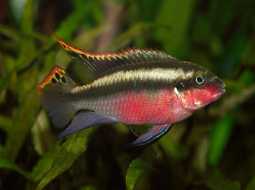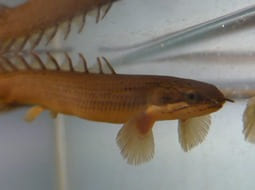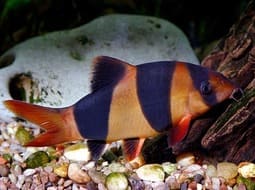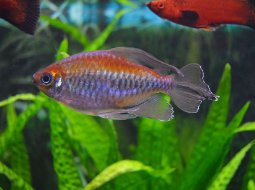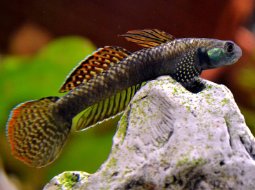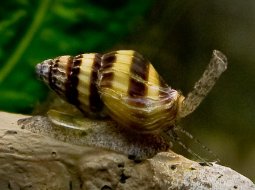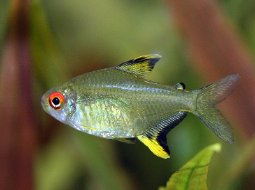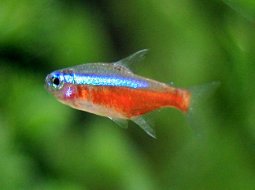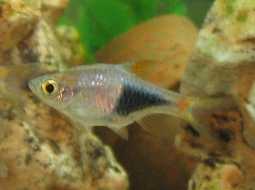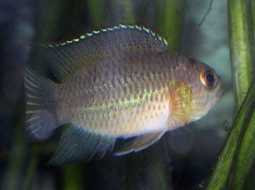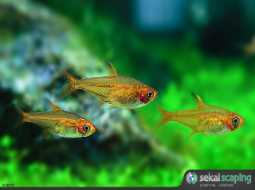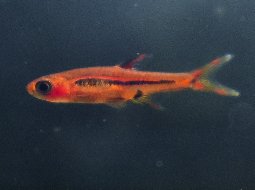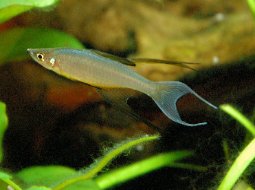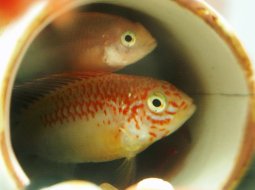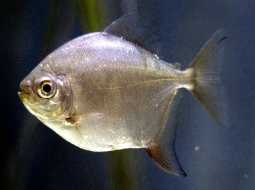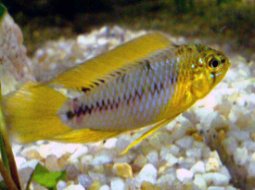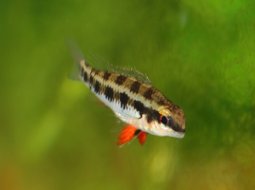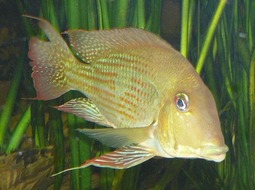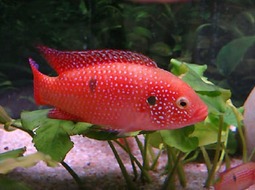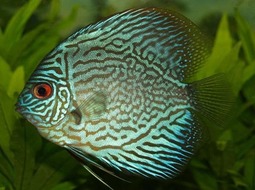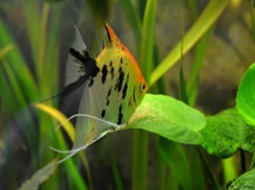
Loading Aqualapp ...
Care and Compatibility of False Discus - Heros severus
Introduction
The Heros severus, also known as the False Discus or Severum, is a species of freshwater fish native to South America. It has an oval-shaped and laterally compressed body, with a coloration that can range from olive green to gray or brown. It reaches a maximum size of approximately 15-20 centimeters in captivity. Although its appearance resembles that of a Discus fish, it is not as demanding in terms of water requirements and feeding.
Behavior
The Heros severus, commonly known as the False Discus or Severum, is a species of fish with a calm and territorial behavior. Although its appearance resembles that of a Discus fish, it does not belong to the same family. It is a peaceful fish but can become aggressive if it feels threatened or if there is competition for territory. It is recommended to keep them in adequately sized aquariums to provide them with space to swim and establish their territory. Additionally, it is important to provide them with hiding spots and structures to make them feel secure.
Sexual Dimorphism
Sexual dimorphism in Heros severus is evident. Males are typically larger and more colorful, with elongated fins. Females are generally smaller and have duller colors. During breeding, males may exhibit more pronounced territorial and courtship behavior.
Reproduction
Reproduction of the False Discus can be challenging and requires specific conditions. It is an egg-laying fish, and the males are responsible for building nests to deposit the eggs. After spawning, the parents may exhibit territorial behavior and protect the eggs and fry. It is advisable to have a separate breeding tank to raise and protect the fry. Successful reproduction may require clean and well-oxygenated water, as well as proper feeding. If you are interested in breeding this species, it is recommended to further research and seek advice from experienced aquarium hobbyists.
Aquarium Conditions
Heros severus, commonly known as severum cichlid or hero cichlid, requires a spacious aquarium with rocks, driftwood, and hiding spots. It prefers neutral to slightly alkaline water. Aquarium décor should include hardy plants and stacked rocks. Maintaining water quality is crucial and providing a varied diet.
Feeding
The False Discus is omnivorous and feeds on a variety of foods. In its natural habitat, it primarily feeds on small invertebrates, crustaceans, insects, and larvae. In the aquarium, it will accept commercial foods in the form of flakes, pellets, and live or frozen foods such as brine shrimp, daphnia, and mosquito larvae. Vegetable-based foods such as spinach or cooked and peeled peas can also be provided. It is recommended to feed them several times a day in small quantities to maintain their health and vitality.
Complexity
Caring for Heros severus can be moderately challenging. They are territorial fish that may show aggression towards other fish, especially during breeding. It's recommended to keep them in pairs or groups with enough space and hiding spots. They require a balanced diet and a well-maintained environment.
In case you need more help, or if you want to know into any topic related to the Heros severus (False Discus) and even any other species you can use the forums to ask what you need.
To do an analysis more detailed about coexistence and behavior of Heros severus (False Discus) use the Aquarium simulation tool, if you do this you can test different ways to combine the False Discus with other fishes giving the dimensions and space on you aquarium, on this way you can known the optimal configuration for keep the fishes that you want.
You can also find out the 43 species compatible with the Heros severus (False Discus) can live together.
Note: The parameters of the water such as PH and temperature are also used to calculate the compatibility of the species.
Compatible species (43)
Compatible (11 Species)
Compatible without any restriction
Similar Sizes (6 Species)
They can coexist if they are the same size or very similar sizes, it does not work in all cases, there may be exceptions.
With Reservation (2 Species)
Compatible in some cases, it depends on the nature and personality of the fish.
Showdown over territory (4 Species)
Fish can live together as long as the space is spacious enough to delimit a territory, otherwise there may be aggressions for competing for the territory.
Considerable size difference (12 Species)
They can coexist while they are similar in size or the size difference is not very abysmal, since as the fish grows it increases the chances of eating its partner that did not grow much.
Compatible if space is enough (8 Species)
They can coexist together if the aquarium they share is large and spacious enough for both species to feel good, as some fish may attack others to feel that they have little space and try to eliminate the competition.
False Discus
Heros severus
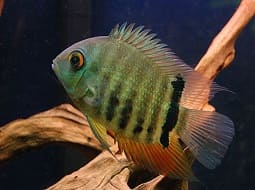
- Ph: 5 - 6.3
- Temperature (c°): 23 - 29
- Measures: 17 cm - 20cm
- Aquarium Capacity:
30 Liters - 8 Gallons - Alimentación: Carnivores, Omnivores
- Colores: Orange, Red
- Comportamiento: Likes to take refuge, Peaceful, Semi Aggressive, Territorial
- Habitad: American
- Preferencias del Acuario: Natural plants, Rocks
- Tamaño: Medium
- Taxonomía: Cichlids
- Tipo de Agua: Sweet water, Tropical waters
- Velocidad de nado o movimiento: Normal
- Zona de Nado: Swim in the middle of the aquarium

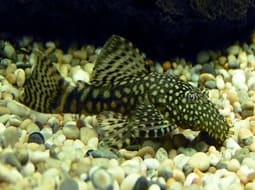
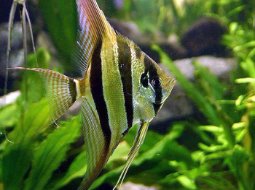
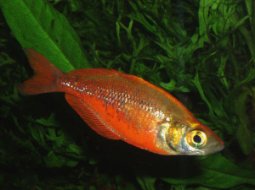
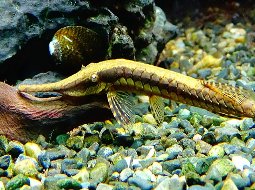
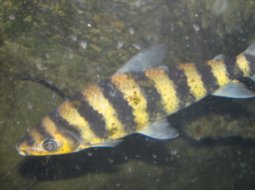
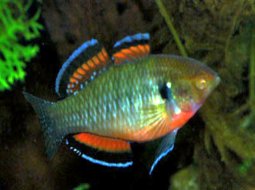
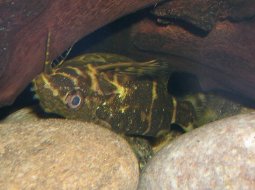
.jpg)
